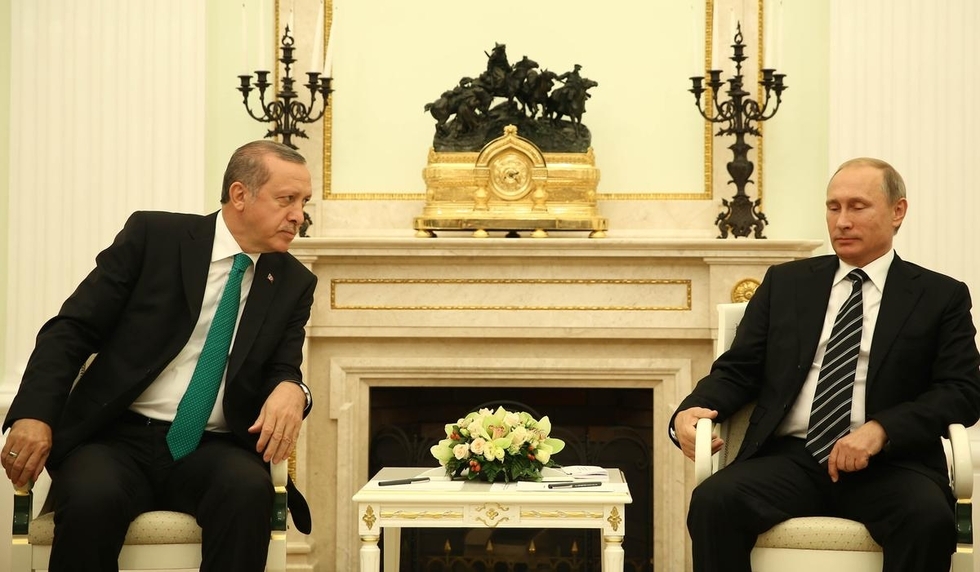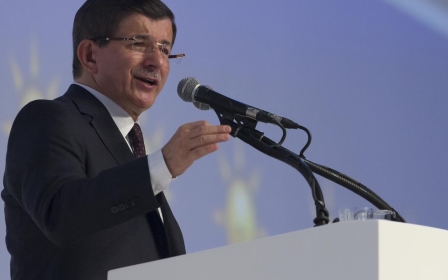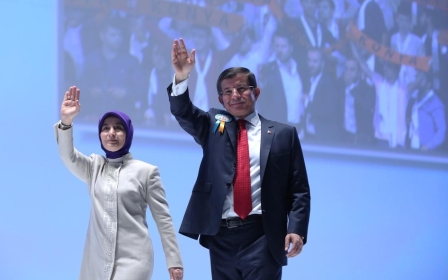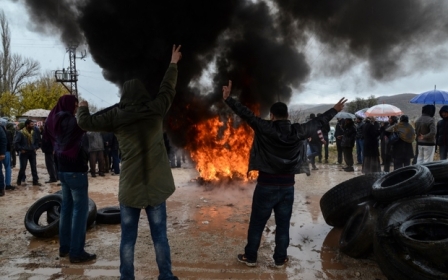Turkey’s unresolved status quo under AK Party

Nina Khrushcheva of the New School recently gave a menacing verdict on the future of democracy in Turkey on the opinion site Project Syndicate. Warning of Turkey’s Putinesque authoritarian turn, she called upon former Turkish president and one of the founders of the governing Justice and Development Party (AK Party), Abdullah Gul, to come out against his life-time friend President Recep Tayyip Erdogan’s undoing of the party’s early achievements and the dismantling of Turkish democracy.
Blunt in tone and scathing in her criticism, her piece seamlessly fits into the general framework of the growing recent literature on the state of Turkish democracy. Once the envy of its neighbours and the region during most of the first decade of the 21st century, this line argues that Turkey has rolled back on its earlier reforms since then.
This reading is attracting increasing disciples to the point that most international media did not treat the 7 June 2015 election as a typical election that could take place in any democracy. Instead, it was seen as a choice between outright authoritarianism versus putting democracy back on track. Reflecting on the election outcome, the British magazine, The Economist, described the results with the title “Autocracy blocked”.
In contrast, the proponents of the AK Party portray a different picture of the party, its political history and its legacy, which is still very much in the making. The party's official discourse equates the AK Party's rule to the revolutionary era in Turkey’s political history. Former deputy prime minister and party spokesperson, Besir Atalay, has forthrightly put it as follows: "Turkey under the AK Party has experienced nothing less than a silent revolution. In fact, the government has published a book entitled Silent Revolution, which … gives a detailed account of reformist and democratising steps undertaken during the AK Party rule.”
As explained in the book, the AK Party cadres contend that during their rule, one taboo after another has been broken. Turkey's century-old question of the military’s place in the political system has been tackled. Likewise, the century-old Kurdish issue has never come as close to a political settlement as it has during their time in power, notwithstanding the current return to conflict. The situation of the country's religious minorities has improved; the state has given back a significant chunk of their previously confiscated properties.
Likewise, Turkey has never been as open to historical reconciliation with the Armenians as it has been under the AK Party. Turkey’s former president Abdullah Gul made a historic visit to Yerevan in 2008. Similarly, both the current president and prime minister, Erdogan and Ahmet Davutoglu respectively, in breaking with Turkey's previous denialist state tradition, have taken significant steps in sharing the grievances and pains of Armenians over the mass killing of their people during World War I. Though disagreement over the appropriate terminology to define this tragedy remains unresolved - Armenians contend that it was the first genocide of the 20th century, while Turkey calls it a massacre or calamity rather than a genocide - these openings were significant.
AK Party's split personality
There are, therefore, two contending narratives regarding the AK Party's democratic credentials.
Another widely shared assumption by AK Party critics is that while the government was reformist and progressive in its first two periods in power, 2002-2007 and 2007-2011, it has been increasingly regressive since the commencement of its third term in power in 2011. To be more specific, they see the Gezi Park Protests of May, June and July of 2013 as a turning point
This line argues that prior to the Gezi protests, the AK Party's track record on democracy and political reform had been mostly positive. It was hailed as the party that achieved an official start date for membership negotiations with the European Union (EU). It had been portrayed as a role model for other Muslim countries having reformist Islamists at the helm of a secular state with a rapidly growing economy in an Islamic milieu.
Yet this begs the question: what were the factors that led the AK Party to be depicted so favourably until two to three years ago and then castigated so harshly for having an outright authoritarian turn since then? The all too amply provided, conventional answer, that the AK party somehow transformed from being the most reformist governing party in Turkey's history to the most regressive one in a matter of months, obscures more than it illuminates. This answer does not take into account the main drivers of democratisation of the first two terms, the context in which this democratisation occurred, or the current political climate.
"Opposition to the state" is the magic sentence that accounts for the democratisation of the early period. This sounds odd to Western ears but is unfortunately all too familiar and plausible to a Turkish audience. The vast majority of Turkish society has never regarded the state as neutral nor as a guarantor of its citizens’ rights and liberties. Instead, they regarded it as representative of a certain ideology and a protector of certain interests. In fact, the state was the bearer of the official ideology of Kemalism - a name derived from that of the founder of modern turkey - which was an amalgamation of illiberal secularism, militant Turkish nationalism, and Western-orientation in domestic and foreign policy. Islamists, Kurds, Alevis, religious minorities and liberals have all had their grievances vis-à-vis this ideological state. Because the repercussions of this ideological state were real and harsh.
The state’s militant secularism victimised the religious-conservative sections of the country. Its official policy of assimilation, repression and Turkish nationalism victimised and alienated the Kurds. Its Sunni Islamic codes were opposed by Alevis. Political liberals were against its militarism, militant nationalism, illiberal secularism, omnipotence and patriarchal structure. Hence the supporters of the state's official ideology were in the minority. And cognisant of this fact, Kemalist elites created structures that allowed them to remain as the ultimate arbiters of all major domestic and foreign policy issues, irrespective of the public and political support that they enjoyed. Turkey’s previously powerful, military-dominated National Security Council could be described as a medium through which the military dictated its will and preferences to the civilian government.
Alongside the military, the high judiciary and other elements of the high bureaucracy acted as the principal protectors of the state, striving to make sure that the official ideology faced no challenge. In this regard, citing communist (1971, 1980) and Islamist (1997) threats, the military waged coups to forestall any challenges to the official state ideology.
Likewise, citing Islamist ideology and supposedly secessionist aspirations (this was how it read demands on behalf of Kurdish cultural and political rights), the judiciary closed down many pro-Islamic and pro-Kurdish parties. In fact, the AK Party itself barely survived a party closure case brought against it by the Constitutional Court by only one vote in 2008. Thus, the opposition to the state, its official ideology and structure were not only a function of the AK Party’s future political projection, but also related to its very survival.
Deconstructing the state
Given this highly authoritarian and illiberal structure and ideology of the state, and the undemocratic nature of its representatives, the opposition to this easily acquired the flavour of democratisation and progress. The AK Party and its former allies succeeded in their opposition by defeating the Kemalist state in its previous form by 2011-12. In other words, Turkey’s century-old status quo was deconstructed.
However, this process produced two outcomes. First, the government was left without an undemocratic enemy, which resistance towards could generate a democratic dynamic. Second, the same process also left Turkey without a status quo.
Since then, the main battle has been about defining Turkey and a new status quo. Conflicting conceptions of what this new status quo should be led to the crumbling of the previous alliances - including with other Islamists, liberals, Kurds and conservatives - which had formed around the AK Party.
This infighting amongst Turkey's erstwhile reformist bloc reduced the appetite and energy for further democratisation. Each party has become more self-oriented and introverted, prioritising their group’s demands and aspirations over a general democratic agenda.
As a governing body, it is the responsibility of the AK Party to create a framework that accommodates the demands and aspirations of Turkey’s diverse socio-political groups, and to once again launch a democratic projection for the country.
- Galip Dalay works as a research director at al-Sharq Forum and senior associate fellow on Turkey and Kurdish Affairs at Al Jazeera Centre for Studies.
The views expressed in this article belong to the author and do not necessarily reflect the editorial policy of Middle East Eye.
Photo: Turkey's President Recep Tayyip Erdogan (L) meets Russian President Vladimir Putin (R) after attending the opening ceremony of the Moscow Central Mosque in Moscow, Russia on September 23, 2015 (AA).
New MEE newsletter: Jerusalem Dispatch
Sign up to get the latest insights and analysis on Israel-Palestine, alongside Turkey Unpacked and other MEE newsletters
Middle East Eye delivers independent and unrivalled coverage and analysis of the Middle East, North Africa and beyond. To learn more about republishing this content and the associated fees, please fill out this form. More about MEE can be found here.





